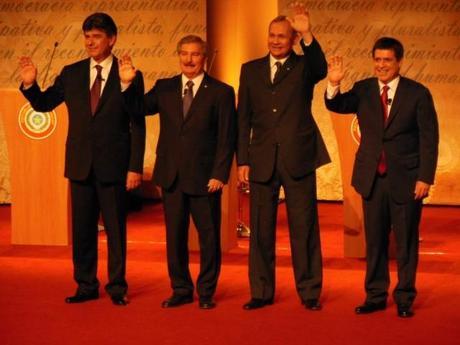
Democracy is a process of governance most often based on compromise, grounded in broad-based inclusiveness of differing viewpoints and the representation of diverse constituency interests. While free and fair elections are certainly one of the most recognizable hallmarks of the democratic process, a vibrant dialog between political candidates preceding an election makes a vitally important contribution to the quality of governance.
Candidate debates serve multiple purposes. First, debates inform the electorate of the issues being considered. Second, televised debates offer an opportunity for voters to form an opinion and differentiate between candidates based on the substance of their policy positions. Third, debates promote transparency and improve the quality of democratic governance as candidates are able to directly express their views to the electorate, engage with their colleagues, and elevate certain issues over others in the national consciousness. Similarly, input from the private sector and civil society in the formulation of economic and social policy is another characteristic of a vibrant democracy as broad-based participation in the policymaking process ensures that proposed legislation represents the interests of all constituents.
CIPE possesses over thirty years of experience in strengthening democracy worldwide and promoting market oriented reforms in various country contexts. In the forthcoming publication Strategies for Policy Reform, two case studies from Paraguay and Yemen represent distinct approaches to ensuring that democracy delivers economic and political freedoms to citizens.
As Paraguay emerged in 2008 from 60 years of one-party rule, when the Electoral Alliance won the elections and ousted the Colorado Party from power, there was a political opening to strengthen democracy and ignite genuine policy debate in the country.
In preparation for the presidential elections in April 2013, CIPE partnered with the Development in Democracy Foundation (DENDE) to conduct a nationwide survey to gauge public opinion on the most pressing issues for voters and organize the country’s first-ever televised presidential debates. The four leading candidates presented their policy agendas to the electorate and engaged in a discussion on the issues. The debates were broadcast simultaneously on all seven public television stations and one cable channel, as well as on 500 radio stations. Over 3.4 million people tuned in to watch and 72 percent of viewers heard the candidate’s public policy proposals for the first time.
In Yemen, CIPE and local partners the Political Development Forum (PDF), the Studies and Economic Media Center (SEMC), and the Human Rights Information and Training Center (HRITC) sought to strengthen the country’s fragile transition to democracy by building legitimacy and agreement on economic reforms.
CIPE partners are leading activities with three distinct constituent groups: PDF with political parties; SEMC with the business community, and HRITC with civil society. As a result of these initiatives, private sector representatives proposed recommendations during the National Dialogue process with the government, which produced policy changes in the areas of security and investment law. Throughout the process, the private sector joined with civil society and opposition parties to build a unified and inclusive vision for democratic and economic reforms.
Despite differences in the nature of transitions around the world, these case studies from Latin America and the Middle East demonstrate that building a broad-based consensus on necessary reforms and promoting greater citizen engagement in policymaking through televised presidential debates strengthens democratic governance regardless of geography.
Teodora Mihaylova is a Research Assistant at CIPE.

